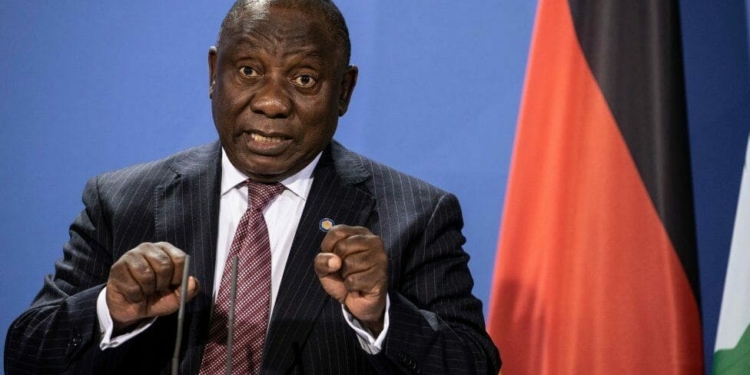South Africa’s President Cyril Ramaphosa has told Russia’s President Vladimir Putin that the war in Ukraine must end.
Mr. Ramaphosa made the remarks while on a peace mission with six other African countries in St Petersburg yesterday.
On Friday, Ukrainian President Volodymyr Zelensky told the delegation that he would not enter into talks with Russia while it occupied Ukrainian territory.
Mr. Putin launched the invasion last year, blaming Ukraine for refusing to negotiate.
Mr. Ramaphosa also demanded that both parties return their prisoners of war and that children detained by Russia be returned to their parents.
The International Criminal Court has charged Mr. Putin with war crimes for the forced removal of hundreds of Ukrainian children from their families during Russia’s occupation of Ukraine.
Mr. Putin interrupted the African delegation’s speech, claiming that Russia was protecting the children.
“Children are sacred. We moved them out of the conflict zone, saving their lives and health”, he said. The UN said they have evidence of the illegal transfer of hundreds of Ukrainian children to Russia.
Mr. Ramaphosa also warned Mr. Putin of the impacts of the war on Africa and said it should be settled by diplomacy.
The war cannot go on forever. All wars have to be settled and come to an end at some stage,” he said. “And we are here to communicate a very clear message that we would like this war to be ended.
The war has severely limited grain exports from Ukraine and fertilizer exports from Russia, affecting African countries in particular and exacerbating global food insecurity.
Mr. Putin, on the other hand, blamed the West for the grain crisis rather than the conflict in Ukraine, claiming that only 3% of grain exports permitted under a UN-sponsored deal to ensure safe passage through the Black Sea had gone to the world’s poorest countries.
He also praised Africa’s “balanced” approach to the conflict.
The African delegation, comprised of representatives from South Africa, Egypt, Senegal, Congo-Brazzaville, Comoros, Zambia, and Uganda, was specifically designed for breadth and balance, with members from various parts of Africa holding opposing viewpoints on the conflict.
South Africa and Uganda are perceived to be more pro-Russian, whereas Zambia and Comoros are more pro-Western. Egypt, Senegal, and Congo-Brazzaville have largely remained neutral.
African countries have primarily perceived the conflict as a clash between Russia and the West.










Discussion about this post